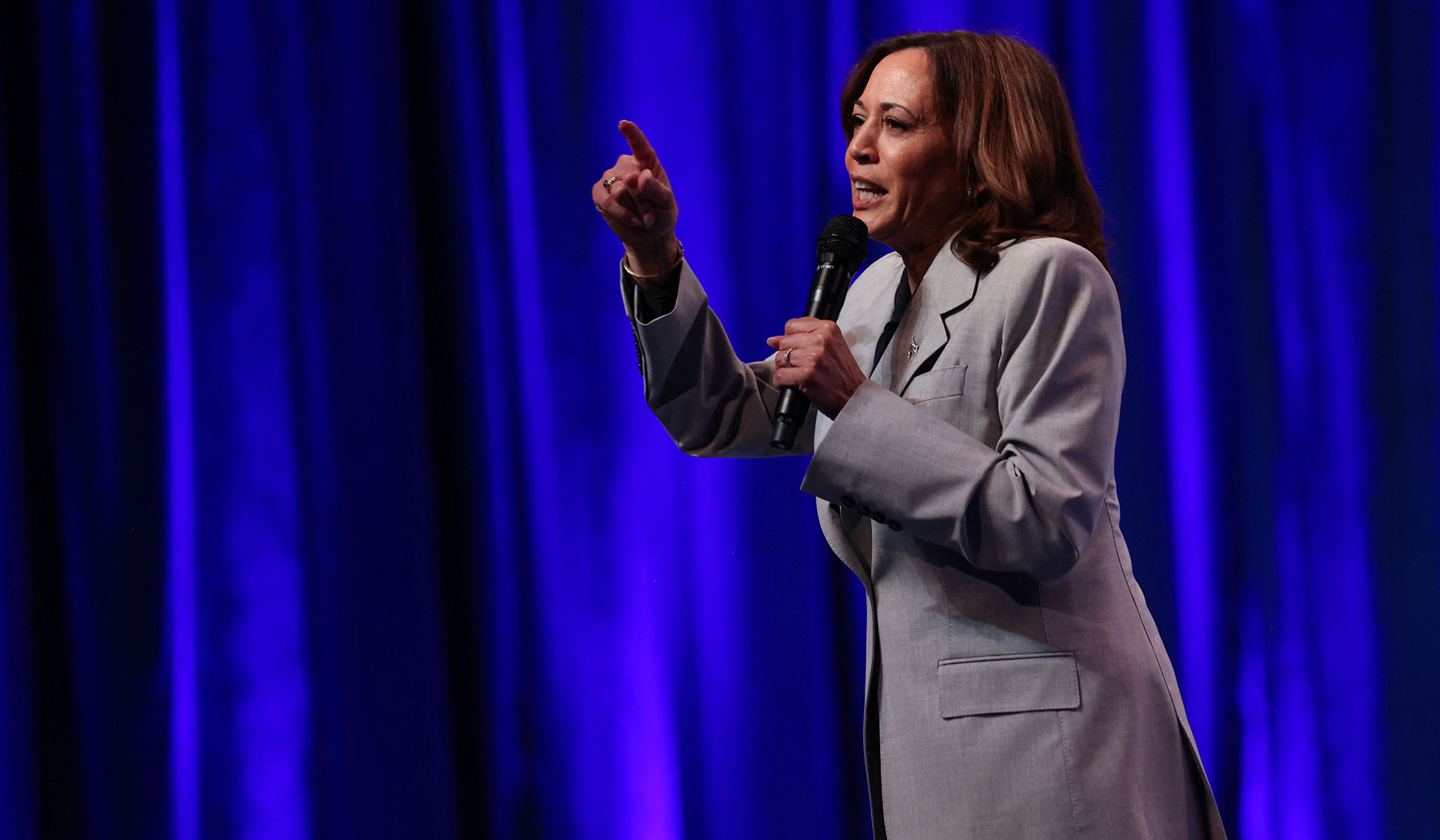


NRPLUS MEMBER ARTICLE T he video announcing the start of Joe Biden’s reelection campaign was not subtle. It featured very little of Joe Biden and a lot of figures meant to appeal to the voters the Biden campaign knows it needs to excite if the president is to have any hope of winning a second term. It featured Barack Obama. It featured the late representative John Lewis. It featured Reverend Al Sharpton. And to a conspicuous degree, it featured more of Kamala Harris than many voters have seen of her for the better part of a year.
In case you weren’t yet sufficiently bludgeoned by the thuddingly unimaginative strategic calculations the president’s reelection team has made in advance of 2024, White House sources made their arithmetic plain in background conversations with NBC News reporters.
“There is a growing view among White House aides that Harris’ work needs to be more prominently displayed to the public to earn her more recognition for her role in the administration,” NBC’s report read. The report cited civil-rights attorney Benjamin Crump, who argued that the vice president’s “historic” accidents of birth were an asset, implying that her lack of relative visibility suggests that the White House is squandering that asset to the consternation of some valued factions of the Democratic base.
But Biden’s weakness with minority voters isn’t the only political liability the president’s image-makers believe Harris has the power to neutralize. As NBC News conceded, an “undercurrent in the need to up her role is Biden’s age”:
Biden is trying to tamp down public concerns about his age and whether he could complete another four-year term as Republican increase their attacks against Harris to cast her as the real candidate at the top of the ticket.
Indeed, recent polling suggests that it isn’t Harris’s appeal to minority voters that has compelled Biden’s campaign to reluctantly embrace the millstone with which it’s been burdened. The latest Harvard-Harris poll, conducted in mid April, did little to dispel the notion that the vice president is anything other than a drag on the ticket. She is viewed favorably by just 38 percent of registered voters. Just 58 percent of African-American voters and 42 percent of Hispanics have a favorable view of her.
At the same time, 63 percent of respondents to that survey said they believe Harris “would wind up taking over at some point if Biden is reelected.” That is a conclusion shared by almost every demographic broken down in the Harvard-Harris poll’s crosstabs — even a near-majority of black voters. Only self-described Democrats have convinced themselves otherwise according to the poll.
The grim actuarial arithmetic that haunts the aging president prevents his campaign from credibly claiming that Harris won’t, in fact, become president sooner than voters might prefer. So the campaign is left with little recourse other than to shine a spotlight on her, if only to convey its confidence in her abilities. We can deduce that the campaign is not especially enthusiastic about this, though, because White House sources were complaining about Harris’s reliably maladroit political instincts just last month.
A March 23 Reuters dispatch conceded that Biden and Harris were “tethered together” as 2024 approaches, even though the vice president “may not have won over America in her first two years in office.” Indeed, she hasn’t even won over the president. “While the pair have a good working relationship,” the report continued, “Democratic sources say Biden has frustrations about some of her work.” Sources close to the White House fretted over Harris’s polling deficit vis-à-vis every potential Republican presidential nominee, the fact that she has “not stepped up on more critical issues,” and the fact that she seems incapable of “inoculating” either herself or the president against the most foreseeable criticisms.
As I’ve noted before, Harris’s defenders — yes, they exist — insist that she will shine in the spotlight of 2024 in much the same way she shined as a prosecutor. But having to delve into the annals of history for evidence of Harris’s political acumen is damnation with faint praise, and even that line of argument is unconvincing. Harris’s prosecutorial shrewdness is apparent only in sound bites — theatrical displays that go nowhere and lead to nothing.
It’s not an especially well-kept secret that Harris’s critics are as eager to see her take center stage as her boosters. The vice president’s detractors aren’t threatened by her penchant for meandering homilies on “the concerns based on what we should all be concerned about,” “this moment as a moment that is about great momentum,” or “the ability to see what can be, unburdened by what has been” so we might “see the moment in time in which we exist and are present and to be able to contextualize it.”
The New York Times telegraphs the Democratic response to Republicans whose eyes glaze over like a donut when they’re exposed to what Washington Post columnist Eugene Robinson charitably described as Harris’s vacuous strolls through “the wilderness of syntax”: The observant will be accused of engaging in “sexism and racism.” But that weapon of first resort long ago lost its sting — and to judge by Harris’s moribund poll numbers, it would wind up hitting many non-Republican Americans if it were deployed.
Unfortunately for them, Democrats don’t have any other options. Kamala Harris isn’t going anywhere. Most Americans understand, in fact, that the incumbent president’s reelection all but guarantees Harris’s ascension to the Oval Office, which raises the stakes in a roll of the dice for Joe Biden considerably. Featuring images of the vice president rather than audio of the vice president may be the best the Biden campaign can make of a bad hand.
